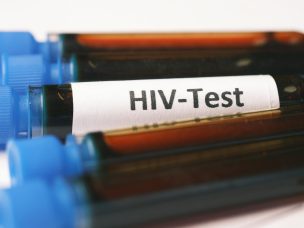Contributions
HIV-1 Lingers Despite Long-Term Treatment
HIV-1 cannot be cured even with decades of antiretroviral therapy. A new cohort study shows that the inducible, replication-competent reservoir does not decline even with prolonged antiretroviral therapy. Antiretroviral therapy (ART) has helped suppress the HIV-1 virus to almost undetectable levels among those who adhere to the treatment. There are many people living with HIV...
Pitavastatin Guards Heart Health in HIV
A new randomized clinical trial shows that pitavastatin or other statins may help reduce major cardiovascular events in those living with HIV. These benefits are not just due to LDL cholesterol reduction. HIV significantly increases atherosclerotic cardiovascular disease incidence in those living with HIV. Studies suggest that those living with HIV have twice the risk...
Pre-Exposure Prophylaxis for HIV Prevention: Updated Report
The 2023 updated report by the U.S. Preventive Services Task Force found that oral tenofovir alafenamide-emtricitabine or injectable cabotegravir were slightly superior to older tenofovir disoproxil fumarate-emtricitabine pre-exposure prophylaxis for HIV prevention. In 2019, the U.S. Preventive Services Task Force (USPSTF) report confirmed that oral pre-exposure prophylaxis (PrEP) using tenofovir disoproxil fumarate (TDF) alone or...
Food Allergens as an Integrant of Oral Care Products
Allergic reactions that occur in susceptible individuals after consuming some oral care products necessitate manufacturers to include detailed ingredient lists on product labels to ensure patient safety. Globally, food allergies are becoming increasingly common and more severe, affecting about 5% of adults and 8% of children. The most severe allergic reactions are mediated by immunoglobulin...
Poor Diet Quality in Childhood Tied to Arterial Stiffness in Teen Years
Mediterranean-style and anti-inflammatory diets tied to decreased arterial stiffness An obesogenic dietary pattern in childhood is associated with increased arterial stiffness in adolescence, according to a study published online Jan. 5 in the British Journal of Nutrition. Genevieve Buckland, Ph.D., from the University of Bristol in the United Kingdom, and colleagues examined the relationship between childhood...
Inflammation, Poverty Have Synergistic Effect on Mortality
Individuals with elevated C-reactive protein at 1.0 mg/dL and poverty had a greater risk for 15-year all-cause mortality There is a potential synergistic effect for inflammation and living in poverty with increased mortality risk for adults, according to a study published online Jan. 16 in Frontiers in Medicine. Arch G. Mainous III, Ph.D., from the University...
FDA Approves Casgevy to Treat Beta-Thalassemia
Casgevy is the first CRISPR-based medicine to be approved for use in the United States After approving Casgevy (exagamglogene autotemcel) in December to treat sickle cell disease, the U.S. Food and Drug Administration announced Tuesday that the therapy has now been approved to treat patients older than 12 years with transfusion-dependent beta-thalassemia. Casgevy is the first CRISPR-based...
Cancer Mortality Decreasing, but Incidence of Some Cancers Increasing
Reductions in cancer mortality being threatened by increasing incidence for six of top 10 cancers Cancer mortality is decreasing, but progress is being hampered by increasing incidence of some cancers, according to a study published online Jan. 17 in CA: A Cancer Journal for Clinicians. Rebecca L. Siegel, M.P.H., from the American Cancer Society in Atlanta,...
Disease Patterns Across Different Age Groups and Genders in NMOSD
Before immunosuppressive therapy, an increased relapse risk in neuromyelitis optica spectrum disorder was associated with onset age in women, whereas after treatment, predicted relapse risk had a U-shaped correlation with onset age in women in a single-center retrospective review. Neuromyelitis optica spectrum disorder (NMOSD) is an autoimmune condition that involves damage to the central nervous...








